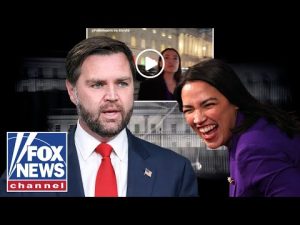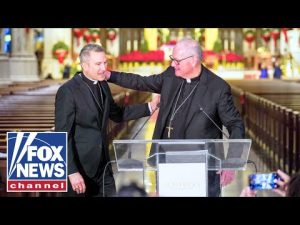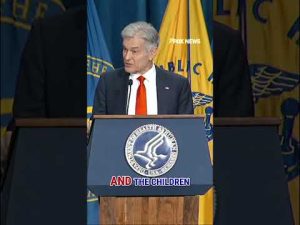In the grand corridors of the Vatican, where ancient walls echo with the weight of centuries, another chapter in the enduring saga of the Catholic Church unfolds. The recent passing of Pope Francis has set the stage for an urgent discourse about the future of a global institution that serves billions of believers around the world. His tenure was marked by a journey that could be described as anything but conventional. Indeed, one might even argue that Francis was the proverbial bull in a china shop, challenging the very traditions that had cloaked the Vatican’s legacy in gold and marble for generations.
Francis, unlike his predecessors, did not revel in the opulence traditionally associated with the papacy. Instead, he consistently championed the cause of the marginalized and the poor. His critiques of various global policies, including American immigration stances and climate change indifference, were often a thorn in the side of conventional leaders. For some, he was a beacon of reform and inclusion, embodying the compassionate ethos of the Catholic Church. For others, his stances resembled something closer to an unsolicited lecture, delivered with the zeal of a missionary and the subtlety of a sledgehammer.
Under his watch, discussions emerged that would’ve once been deemed heretical around the Vatican dining table. Topics such as same-sex marriage, the possibility of priests marrying, and the church’s stance on divorce opened significant debate. In many ways, Pope Francis turned the Vatican into a hotbed of modern theological pondering, giving traditionalists palpitations and liberals renewed hope. But as with many bold reformists, his approach raised eyebrows. Not everyone within the Church believed that this new direction was the righteous path forward, nor did all appreciate his penchant for revolutionary thought disguised as religious duty.
In the wake of his passing, the Church faces a pivotal crossroads. The College of Cardinals is now tasked with choosing a successor who could either build upon Francis’s legacy or pave a more traditional route back to the conservative values that many still covet. There’s an undeniable irony in the fact that while the Church seeks to modernize, those tasked with its future are often well past any notion of youthful idealism, rendering the choice of a possible new Pope akin to deciding between a rock and a moss-covered stone.
The reflections from political figures such as J.D. Vance underscore the complexity and personal nature of this transition. Vance’s recent conversion to Catholicism and personal meeting with Francis before his death illustrate the Pope’s far-reaching influence. It serves as a testament to Francis’s global impact that even political players felt the need to connect with him. Whether Vance’s sentiments reflect a sincere personal loss or a strategic political overture is, perhaps intentionally, left open to interpretation.
As the world waits with bated breath, wondering which way the spiritual winds will blow, one can only hope that whoever steps into the papal shoes has feet large enough to fill them—or, at the very least, the good sense to pick up where the previous pair wisely refrained from stumbling into the more golden trappings of the Vatican Court. After all, there’s a reason the Church has lasted over two millennia, and perhaps a keen grasp on both tradition and evolution is part of that secret Papal recipe.







